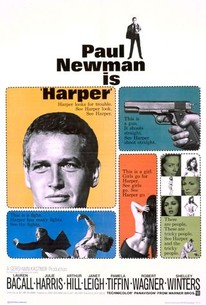 |
| steelydan.com |
A few years ago, I got a phone call from our own Brian Thornton. "Hey, man, I got something up your alley. I just agreed to do two anthologies for Down & Out Books based on Steely Dan, and I had two dropouts. Can you help?"
Could I? We went through the list of available songs, me avoiding the much maligned Everything Must Go. We came up with the standalone single "FM," which wasn't a very good story title. But a line from the chorus, "No Static at All," was. I had Brian his story in about a month.
One of the anthologies, Die Behind the Wheel, is still available after Down & Out called it a run, mostly used copies and stray bookstore inventory. The other, A Beast Without a Name, which my story appears in, might turn up on Thriftbooks.com. Still, it was an obvious prompt, one I may take up myself if I can find an interested publisher, a couple of name writers, and enough stories based on the title. (Cornelia Read, inbox me. You live in Becker and Fagen's old stomping ground!)
More recently, I listened to Alex Papademas's Quantum Criminals on audio. Papademas, a writer for Pitchfork when it was a plucky independent music site run by a bunch of over-caffienated Millennials just pretentious enough to give me a run for my money writing about music. He once was a self-described Steely Dan hater because that's what that generation did back in the early 2000s. Now?
He played Aja one night and realized he actually loved Steely Dan. More importantly, he loved the characters, who are, to a person, noir as hell. A couple would be right at home in a Charles Bukowski story. And why not? Donald Fagen and Walter Becker were two of the grumpiest men in rock. And unlike the scowling Robert Fripp of King Crimson fame, they never aged into a phase where they poked fun at themselves for taking themselves too seriously. Fagen still gets a bit pompous talking about Dan's music. And yet we still love them and their rogues' gallery of gamblers, ramblers, perverts, and losers.
Right off the bat, Steely Dan gives us Jack, who beats a man to death for stealing his water, but is saved because "the hangman isn't hanging." He then "loves a little wild but she brings you only sorrow." Then ends up in Vegas fighting the cards in a losing battle. Jack is the ultimate loser.
Then there's the poor guy, probably the generic character Papademas calls "Mr. Steely Dan," whom we meet on every album. On Can't Buy a Thrill, Mr. Dan is trapped in an affair with a married woman. He wants to walk away, but as "Dirty Work" tells us, he'll come running "like a thousand times before."
And then there's "Felonious," the "Midnight Cruiser," an obvious reference to Thelonius Monk and his wrongful arrest on heroin charges. Monk, a jazz musician Becker, Fagen, and longtime guitarist Denny Diaz admired, was notoriously surly, known for putting the famously hard-nosed Miles Davis in his place, and, as Papademas describes him, plays the piano like a weapon.
Mr.Steely Dan is the most common and morally ambiguous character in Steely Dan's catalog, showing up on every album -- a nostalgic time traveler with questionable racial views ("I would love to tour the Southland in a traveling minstrel show."), as the last man on Earth reading old newspapers and looking for survivors on an old ham radio, and a hedonistic LA denizen trying to have a drug-fueled threesome. He's even a failure-to-launch novelist on Steely Dan's return album Two Against Nature in "What a Shame About Me."
But there are others. There's Dr. Wu, either a drug dealer or a lover's other boyfriend whom the unknown narrator befriends. Depending on interpretation of "Doctor Wu," the Katy who lied is either a double-dealing woman (from a catalog full of double dealing lovers from "Rose Darling" to "Gaslighting Abby") or drugs. Yes, the Dan had issues "chasing the dragon," even explicitly stated in "Time Out of Mind."
There's Mr. LaPage, content to show "movies" in his den and likely would be in the Epstein Files today. There is "Deacon Blues," the doomed jazz musician prowling the suburbs for married lovers and drinking way too much. That's a James M. Cain novel in the making.
Then we have the real-life acid chef Owsley Stanley in "Kid Charlemagne." The line "Yes, there's gas in the car" is a cultural touchstone. But Stanley is not the only real-life character in Steely Dan's music.
Fagen himself is part of two autobiographical songs: "Rikki, Don't Lose My Number" and "My Old School," both referencing incidents at Becker and Fagen's alma mater, Bard College in Annandale, New York. The former references a faculty wife named Rikki whom Fagen had grown close to. Papademas is cagey about how close, but he does relate how she went through a dark phase. The song is about how Fagen hoped she'd reach out before it was too late. The latter song involves a raid by that great moral crusader G. Gordon Liddy, then a prosecutor running for college. Liddy, seeking headlines, raided Bard College. Fagen and Becker got caught in the sweep, along with a female friend in for the weekend. Being students, the college got them released. There friend? Ended up "with the working girls in the county jail."
Walter Becker and Donald Fagen either lived enough noir (other than time travel and nuclear war) or knew enough of these characters to fill a dozen more albums had Becker lived long enough. Being perfectionists, they only did nine albums. That's enough darkness for anyone. And, like the great noir writers of old, they left us wanting more.








.jpg/220px-The_Outfit_(film).jpg)

























